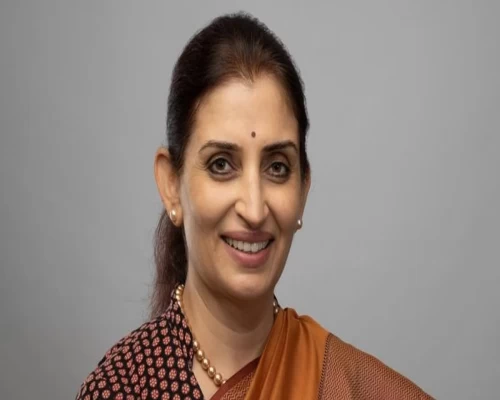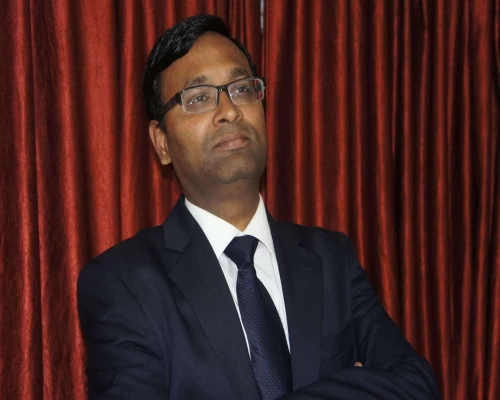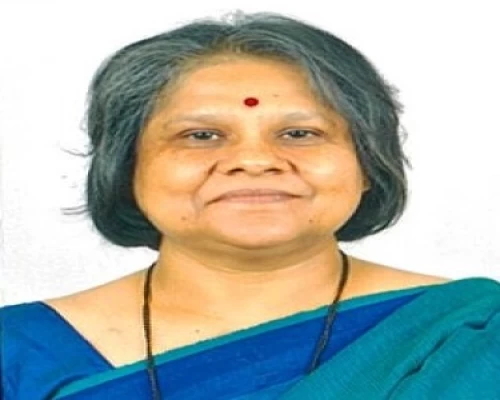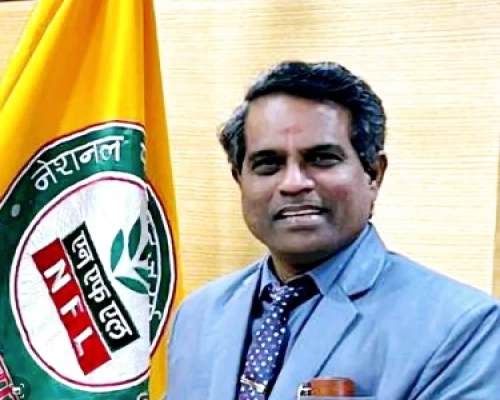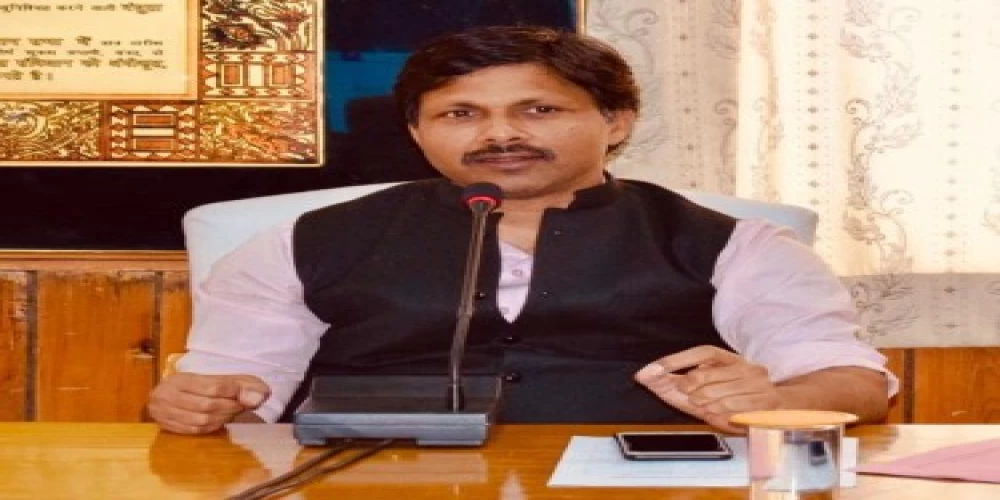
India is a classic example of diversified socio-economic behaviours, political priorities, religious beliefs and geo-demographic characteristics. Our society is loaded with diverse dreams and aspirations which largely owe their origin back to the freedom struggle of our country, said Dr Hari Om, Secretary, General Administration Department, Government of Uttar Pradesh, during an exclusive interview to Rajeev Ranjan Roy of Bureaucrats India. The Independence of India promised a good life to our citizens. He went on to add: “The architects of our democracy and polity spearheaded the march of development with loud intentions of bringing happiness to the poor and down-trodden, realising an all-round socio-economic development in a planned way by eradicating poverty, generating employment, bringing good education and health infrastructure in order to minimizing disparities amongst multiple groups and communities of people and ensure socio-economic justice by giving representations to all the sections of Indian citizens in the affairs of the state and by setting up an independent judicial system in our country. Thus, we adopted a Constitution for us with honest intentions, post independence.” Read The Full Interview Here:
As a senior bureaucrat, how do you look at the feasibility of good governance in a country as diverse as India where a multitude of social beliefs determine people’s behaviour as citizens?
The concept of good governance cannot be summarized in a sentence or two. In a democratic set up like India it can be an administrative system which minimizes conflicts and maximizes consensus in public affairs. It can be a system which manages public resources in such a way that maximizes public welfare. It can be a system which protects people's freedom, ensures equality before law and promotes social equity in the distribution of public goods and services. In short we can say that by good governance the state makes 'good life' possible for its citizens. We can go on adding value and meaning to this concept but these sentences give an idea about ‘good governance’ which indicates a desirable form of state functioning in a democracy.
The guiding principles of the state policy got a place in the fourth chapter of our Constitution but, somehow, the journey, since then, has not been very encouraging. The issue of good governance was confronted with various problems when this came to the actual practice. Some of them were genuine as lack of resources and technology while others were avoidable such as lack of capable bureaucratic apparatus, lack of political will, insensitiveness, irresponsiveness, lust for power, corruption, under-representation of larger sections of the society at multiple forums of decision making, inequitable distribution of fruits of development amongst the people and so on. This may be, perhaps, because of what Dr BR Ambedkar had once warned that ‘Political freedom is incomplete without socio-economic freedom.’
The caste-ridden hierarchical society cornered the benefits of development for the dominant oligarchy and deprived the poor, illiterate, superstition infested marginalized majority. The slogan of good governance is yet to be realized in letters and spirit but with the awakening of the masses, with general access to the modern technologies and latest information, increasing interest of the people in the affairs of the state, our society is now better placed to be in the role of a watchdog over the state and its institutions now. I hope that the system will start delivering people’s mandate in a better way in the coming decades.
Even after 75 years of Independence, we have not been able to take benefits of good governance to people’s doors even though ‘Sarvodaya’ has been the guiding principle of Indian democracy and our Steel Frame! Where have we erred as a nation?
I would like to differ with this assumption to a great extent. If we compare the present scenario of development with that which existed during the initial decades post Independence, the difference is visible and considerable. Roads, bridges, dams, power generation units, townships, schools and other academic institutions, hospitals, rural housing, electrification, education enrolments, literacy ratio, child mortality ratio, life expectancy, women’s participation in the workforce, general access to information, the per capita income and overall representation of various groups and communities in decision making institutions, etc., -- all have gone up in a big way during these years after Independence. This would not have been possible with a sleepy and incapable administrative system. The steel frame has given way to the ever increasing people’s participation in the state affairs, but it is very much there, managing the newer mandates coming from the political executives whose priorities are often populist and not progressive. We have not erred as a nation but we will have to focus more on public issues and less on political interests of the ruling party, which is a difficult goal to achieve. We will have to increase the pace of development and work out both short term and long term strategies to empower our citizens without bias and prejudices.
It is still felt that there is still too much of a routine approach and tentativeness in matters of governance. As a result, there is a yawning gap between people and bureaucracy. What is your take?
The gap is more between the requirements of the society and the availability of resources and the willingness of the government to go for them. In a state, things move as per the priorities of the government in power. Many new schemes, initiatives and innovations have come up and benefited the common people. The things are more transparent now due to almost universal digitization of bureaucratic functioning than they were a few decades ago. The power of social media and competing private sectors has made things easy for people. We should remember that the population of our country has increased many folds since Independence and the public sector has been shrinking since then. Be it education or health, be it consumer goods or services, be it finance and public safety, the private sector has got a sizable role to play. Gone are the days of irresponsive and insensitive systems. Even the highest institutions of the country cannot afford to be arbitrary. The public accountability has increased at all fora. This is however true that we have to go a long way to cater to the needs and aspirations of our society.
As an IAS officer, you have worked at different levels and in various areas. Which are the areas where we have improved significantly in terms of governance?
There are many sectors which have witnessed qualitative changes. To name a few just see rural education infrastructure now. After Sarva Shiksha Abhiyan all the villages have got a good primary school building where students get free uniforms, food, books and scholarships. Due to this enrolment has reached almost hundred percent. Health is another example. National Rural Health Mission has given a CHC and PHC at block and village level with facilities of primary and secondary health care and that too almost free of cost. Rural housing has seen a sea change. You would not find much ‘kuchcha ghar’ in our villages now. Sanitation scenario has also witnessed a revolutionary change. The condition of state and village roads has also improved a lot. Cities are getting 24 hours and rural areas are getting more than 16 hours of electric supply. MANREGA has bridged the much needed gap of rural employment with guaranteed minimum wages for the rural unemployed populace. Last but not the least the public grievance redressal mechanism is also streamlined now.
Do you think the increasing use of digital platforms and fast penetration of social media platforms as a tool for mass communication have brought the administration closer to the people?
Yes, this is the most powerful tool with the masses nowadays. Social media has brought much needed transparency and accountability in the functioning of the bureaucracy and government as well. Almost everything is digitized now leaving little scope of whims and fancies of the power wielders. The domain of discretion, pilferage and corruption has shrunk to a great extent with the digitization. The smart phone in almost every hand has educated and empowered people as knowledge and required information is just a click away from them. Digitization has helped greatly in the field of marketing and commerce. This is one of many reasons for the growth in the service sector of our economy.
You have a second Masters in governance, public policy and political economy from The International Institute of Social Sciences, The Hague, Netherlands. How powerful are the core values of Indian bureaucracy – integrity; respect for diversity; professionalism; collaboration in thoughts and actions by engaging with all, and keenness to serve the underprivileged?
With the advent of liberal democracies, societies worldwide started feeling the need for the people-centric governments and executive systems which work for the welfare of the citizens. These systems are supposed to be driven by humanitarian considerations not by the whims of the ruling parties or in the interest of the powerful oligarchy. Administration is bound by law, to be responsive and accountable. India being the largest functioning democracy, no government or administration can sustain here without paying heed to the needs and aspirations of diverse communities in our society. Integrity, professionalism, collaboration with different stake-holders in the decision making processes are a must in today's governance. Any government draws legitimacy not only from the law of the land but it also requires the moral sanctity from the general masses if it wants to be effective in public affairs. India is a developing country having a sizable population of poor, downtrodden, underprivileged and deprived. There are many developmental and welfare oriented programmes run by the government, i.e., housing, free food grains, guaranteed employment on minimum wages, scholarships for poor students, free education, financial support to widows, handicapped and old age persons and so on. Modern age administration or the government cannot function on purely political and profit-loss criteria as public welfare and development are the core consideration when a government lists its achievements before the masses for its approval before the elections.
What is your take on India’s approach towards urban planning and development? How futuristic is our collective strategy?
I personally feel that the pace of urbanization is the answer to many problems of Indian society. Education, health, employment, riddance from caste-gender discrimination, greater socio-economic mobility, and push to economy and better managed public life all need a good urban planning and development policy. After Independence our country has seen many new townships like Gurugram, Noida, Greater Noida, Chandigarh, New Hyderabad, New Lucknow apart from many peripheral expansions and development of old cities to accommodate rural influx. However the pace and standard of such cities are debatable. The Indian population has grown at a god-speed putting road-blocks in front of the system. Roads, electricity, water, sanitation, educational institutes, hospitals, habitations, markets and other financial, social and cultural establishments demand thorough long term planning and execution and need sufficient resources. India being a developing nation still does not have sufficient finance to cater to its core needs. More often we find that a sizable portion of the budgetary allocation is made for the projects that are more symbolic, emotional, populistic and political than for the sectors that are critical to the development of the society. The Indian economy is on a growth path but its pace is slow and we need to go for revamp in many sectors to catch up with the fast growing nations in the world. If we want a good urban policy we will have to focus on the present situation in rural India, especially the population that was once happily dependent on agriculture and its allied activities for livelihood. A section of it has already moved to the major cities for employment and increased pressure on their civic infrastructure. Even the finest of our cities have many slums which are not even semi-urban lacking basic amenities for an average urban life.
You have a very rich professional record. You served as Collector in 11 districts of UP. Kanpur, Allahabad, Gorakhpur, Saharanpur, Mirzapur and Moradabad are the major ones. Here also you have left a popular track record. Will you, please, share moments of highs and lows? A few such instances which you would like to relish or regret forever?
In the districts as collector we normally implement the developmental and social schemes of the government in power and redress the grievances of the local people. Maintenance of public order and enforcement of law of land is another big responsibility. The issues are more local than general. In some districts, maintaining law and order and ensuring communal harmony is a challenge while in others, managing drought and flood needs prime attention. Some have urban issues, while others are primarily rural. During my tenure as district collector I have been fortunate to handle most of such issues. Holding all kinds of elections--Parliamentary, state assembly, local bodies and panchayats -- managing natural calamities and big public congregations successfully can be said to be highs of public administration in the fields. I don’t remember any lows during my stints as collector. I can at best say that given the chance, I would have handled some issues more effectively than it was actually done by me then.
At the government level, you have served in many key departments such as Home, PWD, Agriculture, Social Welfare, Sports, Cooperative, Revenue and Culture as Secretary. How robust is the functioning of the administrative apparatus?
I belong to the Uttar Pradesh cadre and we all know that this state is vast both in geography and demography. This is why at the government level, the functioning in every department I worked in has been robust and tiring at the end of the day. Home, PWD, Agriculture and Social welfare and Cooperative departments were directly related to the day to day issues of the society so we had to be always in interface with the people and their representatives for their problems and demands. Working in the Home department gave me an understanding of the complex mechanism which is required to ensure peace and maintain law and order in the society which is a precondition for any positive activity to carry on. PWD is responsible for the network of roads and bridges. It is a herculean task to lay all weather roads and maintain them. Working as director of sports was a real fun for me. Being a sports lover and badminton and cricket player myself, I could understand and contribute my bit to this sector for the sports loving youth--both in rural and urban areas as well. These assignments gave an opportunity to see the larger picture of administrative functioning and our interface with multiple stakeholders.
Will you please tell us something about the Greater Lucknow Area, where you are currently working as Secretary? Areas of priorities!
Lucknow is the capital city of Uttar Pradesh. During the last few regimes, this city has gotten a tremendous boost in infrastructure and public amenities sectors. Roads, flyovers, public transport, hotels, parks, air connectivity -- all have witnessed big qualitative changes. The city has many good educational and medical institutes. Its population is increasing which exerts pressure on civic amenities. To me the priorities as a public servant may be health and hygiene, public transport, affordable housing for the migrating population and strengthening safety and security mechanisms for the city dwellers.
Dr Hari Om is a multi-faceted personality. He is a poet, a shayar, a story writer and moreover a very popular ghazal singer of our times. How has this been possible?
Honestly I don’t know how this all happened. I have had a flair for writing and singing since my younger days but these things were only a tool to handle the stress of long study hours. I was lucky to have an urge for knowledge and thus took keen interest in studies throughout but these hobbies helped me a lot to stay focussed during different exams and face failures at my tryst with civil services competitions. I have been a student of Hindi Literature and did my PhD also on Krishna Sobati’s novels. Poetry and shayari attracted me a lot then and it keeps pulling me even now. So I kept reflecting and writing my thoughts in a diary during my University days and got published in magazines. Moreover, harmonium was my constant companion during those years as a student. I published my first book--a ghazal collection--in 2002, after coming into the IAS. Did my Ph D also at the same time! So you can see that literature and music went on along. Writing poetry and stories and publishing books was easy during my field days of administration while singing was not. Despite having a good throat, it needed regular vocal training and learning basic classical ragas for singing with some standard. This I could do some five-six years back only when this urge for singing in public grew stronger in me and I could get some more free time once posted in secretariat. With daily ‘riyaz’ and encouragement from learned ‘Ustads,’ I started singing in 2016 and it goes on till date. I composed and sang my own lyrics and this makes me unique as a ghazal singer in India. My love for writing and singing is evident with seven books and as many music albums apart from several single songs released by brand companies.
‘Sikandar Hun Magar Haara Hua Hun’ is your famous ghazal. It seems that you have very brilliantly summed up the dilemma of those who wish to bring some critical, positive changes in the system?
This ghazal has been my signature since its release. This ‘sher’ has a deep philosophy. The legacy of Alexander the Great has been placed in the context of love and life for us all. Winning in love is impossible. The surrender of oneself is the only path to love. Life is full of struggles. We keep facing problems and failures at various fronts. This couplet gives strength and hope to the striving youth of our age. With all the talent and hard work, we often fail in our fights to achieve what we want. This sher depicts that mood. It also comes true for the public servants like us who wanted to do a lot but because of various reasons we could not or we failed on several counts. This couplet is well received by all the sections of the readers and listeners, whenever it is presented before them.
How did you slip into the world of creativity? Was it a mere fluke or there was an inner voice to embrace the challenge of creativity?
It was not a fluke. Creativity requires honest urge, a strong inner voice and great learning and practice before it possesses some influence over the audience. I have known since my younger days that I enjoy writing and singing. If you want to be a good writer you need to be an avid reader. Likewise if you want to be a good singer you need to be a good listener and learner. Then comes the role of gurus and practice! I have spent hours doing riyaz and sometimes months writing a story or poem. This gives me pleasure and a sense of worthiness. These endeavors made me a better human being and I think a better public servant too.
How supportive is your family to your extracurricular activities? I am sure they must not only be enjoying your versatility but must also be supporting you in your creative pursuits?
Nothing is possible without family support. Being in government service and living one’s passion at such a scale is not easy. My family stands full in support.
Last but not the least, what is your advice to young Civil Servants? What are the precautions they should take so that they deliver their best in serving people with humility?
Cracking one of the toughest exams of our country and becoming a Civil Servant may be possible for a good student with hard work but being a successful and revered bureaucrat requires a lot of things. Being a patient listener and constant learner is the first tip for young Civil Servants. Then comes your humility and polite behaviour with your subordinates and public! Honesty and strong moral fibre is the hallmark of one's personality for the whole career. They should have to think seriously, what they want out of this service and what they can deliver to the system within their jurisdiction. Even a minor change for the betterment caused by you is recorded and remembered for long as it affects thousands of lives. Working in the field offers newer challenges daily and teaches us newer lessons if we are ready to embrace them and upgrade us. There is no handbook for a successful bureaucrat. Even the best of your decisions could land you up in the worst phase of your professional life as we work in a political set up where, sometimes, performances are evaluated on political parameters and not on professionalism. So never get disheartened, stay positive and work hard in the interest of the people, especially the poor, oppressed, deprived and underprivileged.


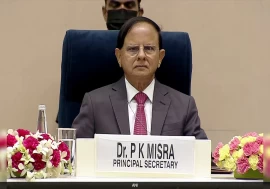
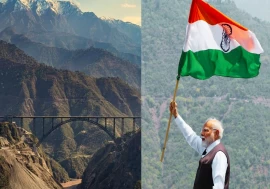
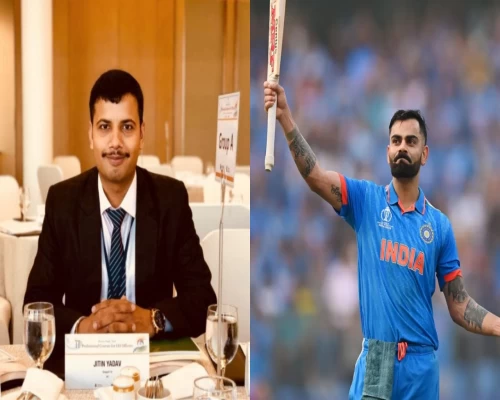
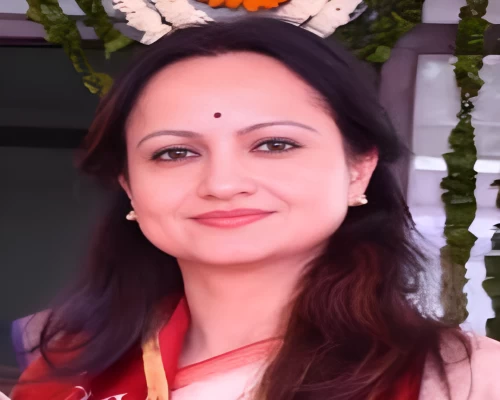
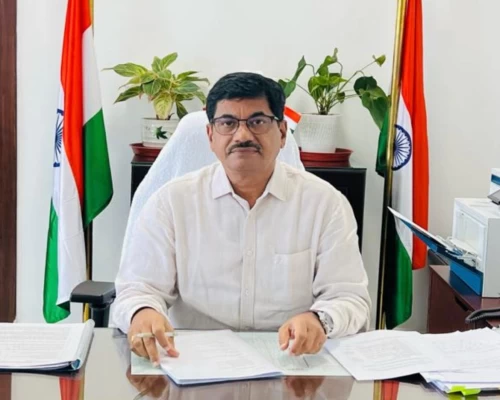
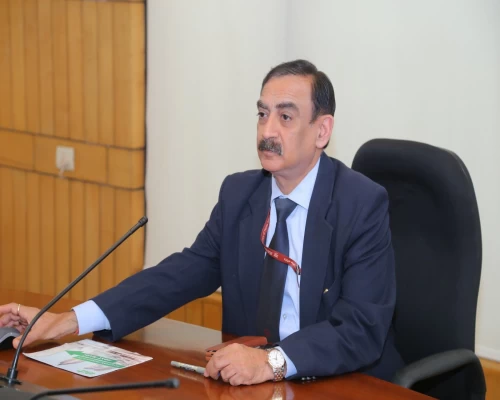
_500_x_400.webp)
